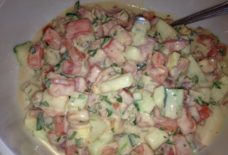Violence Against Palestinian Farmers Increases Now That Olive Harvesting Has Begun
By: Katie Teague/Contributing Writer
In 2006, the Israeli High Court instructed the Israeli Army to protect Palestinian olive farmers during their yearly olive harvest, which falls between early October and November. Fourteen years later, human rights groups continuously document acts of settler aggression directed at farmers and their olive groves, including arson, theft, and physical assault.
This year, the West Bank settlement of Yitzhar and its surrounding illegal outposts are fueling a particularly violent effort to stop the Palestinians from harvesting olives in peace. On day one, Israeli settlers from Yitzhar attacked farmers from the Huwara Village and set olive trees on fire.
The olive harvest was once a time of celebration and peace, carrying with it rich family and cultural traditions.
Reports came from many areas about olive trees being cut down or uprooted. On day three, Israeli settlers from Givat Ronen outpost rampaged through Burin, vandalizing houses. A week later, just after the UAE signed their agreement with Israel, expansion plans for 4,948 settlements were approved, and Yitzhar settlers celebrated the decision to let their settlement double in size.
To stop the violence during the olive harvest, volunteers from the Israeli and international community join Palestinian farmer families each year as a peaceful protective presence, bringing nothing but cameras for defense. However, COVID-19 has created the perfect storm for a rough harvest because this year, internationals are unable to join them.
Israelis of goodwill are doing their best to compensate and accompany the Palestinian farmers as monitors and to lend a hand with the harvest. For instance, on days five through seven of the harvest, when Rabbis for Human Rights joined to help Burin farmers pick olives, all went well.
Israeli Protective Presence groups volunteering during the 2020 Olive Harvest. Photo by Avi DabushThe olive harvest was once a time of celebration and peace, carrying with it rich family and cultural traditions. Additionally, olives and olive oil products have long played a vital role in the Palestinian economy, making up about 25% of the region’s gross agricultural income.
The pandemic and US elections are consuming the world’s attention, leaving the violent attacks on the Palestinian olive harvest unreported.
The degradation of olive groves over time, which is due to both land destruction and the inability to tend to farms year round, threatens the livelihoods of many Palestinian farm families across the West Bank. Action must therefore be taken to not only save the olive harvest, but also to give farmers access to their land 365 days a year. Above all, the Israeli Army must ensure that every foot soldier understands and upholds the High Court ruling which requires them to protect the Palestinian farmers from the Israeli settlers, rather than the other way around.
The pandemic and US elections are consuming the world’s attention, leaving the violent attacks on the Palestinian olive harvest unreported. Nevertheless, there are ways to prevent further aggression. Congress intervenes when constituents ask, and so far, 40 Congressional offices have attended briefings about what they can do to save the Palestinian olive harvest. Please email your senators and representatives now to ask them to press Israel to implement the Israeli High Court decisions to safeguard the farmers and to bring the perpetrators to justice. Learn more at https://www.
Katie Teague is the Advocacy Coordinator at Rebuilding Alliance. When you email Congress, Rebuilding Alliance will follow-up to schedule the 30 min. briefing with speakers from the field, and invite you to join the call.



